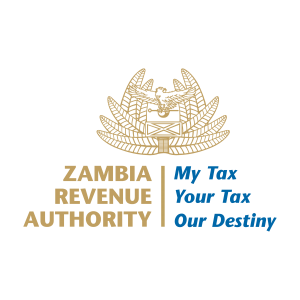Zambia Revenue Authority Concords with President’s Vision to Empower Clearing Agents Owned by Zambians Association
By Abdul Rahman Suagibu –

Photo Credit: Zambia Revenue Authority
NEW AFRICA BUSINESSS NEWS, Freetown, Sierra Leone- ZAMBIA Association of Manufacturers has raised an eyebrows with regarding the implementation of the proposed solution – Digital Tax Stamp Solution to enable tax compliance on all excisable products.
The Zambia Revenue Authority has disclosed its concern to commence implementing a Digital Tax Stamp Solution to enhance tax compliance on all excisable products, thereby galvanizing countries such as Uganda and Mozambique in pursuing this option to minimize illegal trade and improve revenue collection.
Precisely, the Zambia Association of Manufacturers readily employs supportive strategies to improve tax revenue collection and revenue assurance by the ZRA, the Association says it is worth noting that the DTS solution is most effective where smuggling, counterfeit products, tax leakages and under declaration of production or sales volume is rife by registered industry players.
ZAM Vice President South – Chipego Zulu says for this reason, it is imperative to note that it may not be ideal to treat all companies producing excisable products the same in view of variability in tax compliance and the nature of illicit trade in their respective sectors.
Ms. Zulu says the Authority should channel resources towards promoting Voluntary Compliance, instituting cheaper effective enforcement controls and targeting specific sectors within the economy, where there is proven evidence that smuggling, counterfeit products, tax leakages and under-declaration of operational volumes exist.
She said viewing the Digital Tax Stamp Solution solely as a tax revenue growth initiative therefore is erroneous, as a poorly designed solution would likely result in increased costs of doing business for legitimate manufacturers in excisable sectors.
Ms. Zulu said higher costs will in the medium to long-term translate into reduced revenue collection for ZRA as a result of products in these sectors becoming uncompetitive on the market.
She has since recommended that a comprehensive consultative process be undertaken with the affected private sector companies to determine the manner in which the DTS solution will be implemented and ensure that adequate sector specific input is gathered and considered in the design and execution of the same.
Ms. Zulu said it is imperative that the ZRA undertake an independent due diligence assessment of the DTS solution in those countries in which it has been implemented such as Mozambique, South Africa, Kenya, Tanzania, Uganda and Ghana who are in the process of implementing similar solutions, albeit amidst high operational and cost challenges to both the Revenue Authorities and Industry.
Further, Ms. Zulu has observed that the reported Track and Trace system that forms the crux of the proposed DTS solution does not currently exist anywhere in the rest of Africa and it is therefore imperative that international best practices and more cost-effective alternatives be considered before the ZRA proceeds with the DTS proposal.
“Cheaper and more cost effective methods can be determined jointly with the private sector through dialogue under the recently launched multisectoral Anti-Illicit Trade Committee (AIT Committee) which seeks to draw on the dual strengths of Industry knowhow from the private sector and the enforcement capabilities and capacities of Law Enforcement Agencies such as the Zambia Revenue Authority, Drug Enforcement Commission, and Zambia Police amongst others to curb illicit trade across a broad spectrum of products including excisable products”, she added.
She said given the recent establishment of the AIT Committee in November 2019, the ZRA should leverage the strength that comes with working with all parties in the public and private sectors who are members to address challenges arising from illicit trade and its negative impact on revenue collection.
Ms. Zulu says ZAM remains open to further engagements with the ZRA towards the development of a workable solution that meets the shared growth aspirations of the Authority and Industry in developing Zambia into a prosperous middle-income country through enhanced tax compliance anchored in the predictable and sustainable long-term growth and development of Industry.
She has urged the ZRA to continue to promote Voluntary Compliance for those organizations that are fully tax compliant and this will remove the uncertainty in the market and avoid unnecessary operational cost escalation at industry level.
For New Africa Business News Abdul Rahman Suagibu Reports, Africa Correspondent
Facebook: newafricabusinessnews.com
Email: Info@newafricabusinessnews.com
